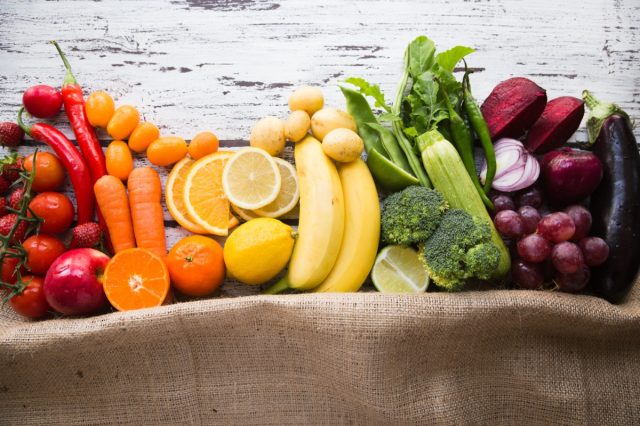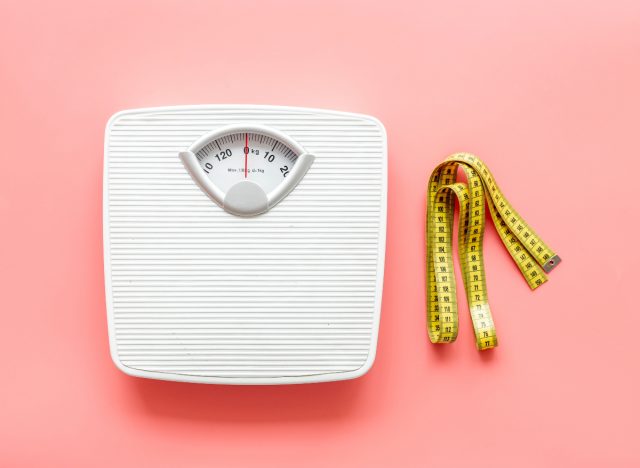The 'GM Diet' Can Supposedly Help You Drop 15 Pounds in a Week, But Is It Safe?

You've probably heard about quick-fix diets promising rapid weight loss. Among them is the General Motors (GM) diet, which claims you can shed 15 pounds in one week's time through drastic calorie restriction. While the idea of losing weight quickly is tempting, knowing whether such a strict eating pattern is safe and sustainable is essential. That's why we spoke with Destini Moody, RDN, CSSD, LD, a registered dietitian and sports dietitian with Garage Gym Reviews, who explores how the GM diet works, what foods you can eat on it, and whether or not it's safe and sustainable.
Rapid weight loss and fad diets often grab our attention because they promise quick results. However, their impact on your long-term health and well-being shouldn't be overlooked. According to the National Institutes of Health, risks linked to excessive weight loss from fad diets include nutrient deficiencies, electrolyte imbalance, fatigue, headaches, and cramping.
Before adopting any diet plan, it's crucial to weigh the short-term benefits against the long-term consequences to ensure you're making the best choice for your health.
What is the GM diet?

The GM diet is a seven-day weight loss plan that claims to help you drop up to 15 pounds in a week. General Motors allegedly created the diet in 1985 for its employees to promote wellness and productivity, though this origin story is more myth than fact.
The diet is structured around eating specific food groups each day of the week to detoxify the body, rev up the metabolism, and kickstart weight loss. Additionally, this eating plan emphasizes consuming plenty of veggies and fruits and staying sufficiently hydrated.
What foods can you eat on the GM diet?

The GM diet has a strict daily food schedule. On Day 1, you consume only fruits, with the exception of bananas. Day 2 is all about vegetables, focusing on raw or cooked veggies. Day 3 combines fruits and veggies, excluding bananas and potatoes. Day four calls for consuming milk and bananas. By Day 5, you're allowed limited portions of lean meats, like chicken or fish, and tomatoes. Day 6 involves limited portions of lean meats and unlimited veggies (excluding potatoes). Day 7 concludes with fruits, veggies, brown rice, and fruit juice.
Not everyone agrees with the structure of the GM diet. Moody says, "In my 10 years of practicing and studying nutrition, I cannot extract any meaningful rationale from this diet structure. It seems like someone just made this all up out of nowhere and posted it on the Internet."
Does the GM diet help you lose weight?

The GM diet can help you lose weight quickly due to its low-calorie and high-water content foods. However, the rapid weight loss is primarily water weight and glycogen, which can return to normal once you resume your regular eating habits. The GM diet is a short-term hack rather than a healthy and sustainable weight-loss strategy.
"While you're sure to lose weight on the GM diet, it's not the kind of weight-loss strategy you should adopt," cautions Moody. "Eliminating food groups and eating a number of calories far below your resting metabolic rate will cause weight loss, but much of this weight will be from water and muscle mass, which isn't healthy or sustainable. Furthermore, you're likely to regain the lost weight as soon as you return to your normal eating habits."
Is the GM diet safe?

While the GM diet includes healthy foods, its restrictive and unbalanced nature could lead to nutrient deficiencies if followed for extended periods. Rapid weight loss during crash diets can also cause muscle loss, a slower metabolic rate, reduced bone mineral density, and other health issues.
"The GM diet is unsafe for many reasons," says Moody. "You may experience weakness and protein deficiency because you're only allowed to have high-quality protein one day per week. Also, if you have a history of disordered eating, this level of restriction can put you at risk of relapse. It can also promote disordered eating behaviors in those who previously had a healthy relationship with food due to the obsession that can be brought about from the restriction and the short-term results it provides."
Instead of restricting your diet and drastically cutting calories, a healthier and more sustainable approach to weight loss involves combining a well-balanced diet with a slight caloric deficit with other healthy lifestyle habits, such as regular exercise, good sleep hygiene, and stress management.









